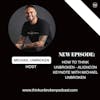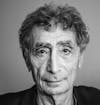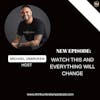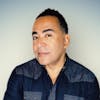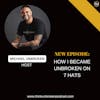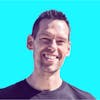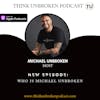E311: Trauma, fitness, and leveraging the darkside with Brian Keane | CPTSD and Trauma Coach
In this episode, I speak with Brian Keane. Brian's journey and story from childhood trauma to creating a massive change in his life, including running multiple endurance races in the Sahara and the arctic, are incredibly excited for this conversation.
See show notes at: https://www.thinkunbrokenpodcast.com/e311-trauma-fitness-and-leveraging-the-darkside-with-brian-keane-cptsd-and-trauma-coach/#show-notes
In this episode, I speak with Brian Keane. Brian's journey and story from childhood trauma to creating a massive change in his life, including running multiple endurance races in the Sahara and the arctic, are incredibly excited for this conversation. We're going to talk about fitness and nutrition and changing your life and your physical body and the mental aspects, and how getting into this place of pushing yourself physically is a part of the journey of healing and recovering from your childhood experiences. So, it's a very empowering and powerful conversation; it really hit home for me.
Brian Keane is super awesome, I'm very excited for Brian for his work, for his mission, and we're going to talk about the dark side a little bit here, pushing yourself, what it means to get to this place in life where you start to create massive transformation and change one step at a time.
Let’s get into the show, and Brian will bring us a powerful and tremendous amount of value today!
Watch, Subscribe and Share this episode!
Learn more about Brian Keane at: https://briankeanefitness.com/
Learn more about Think Unbroken and Pre-Order my new book: Unbroken Man. Plus, learn more about the free coaching and other mental health programs. Click here: https://linktr.ee/michaelunbroken
Support the Podcast: Become a listed sponsor!
Follow me on Instagram @MichaelUnbroken
Learn more about coaching at https://coaching.thinkunbroken.com
Get your FREE copy of my #1 Best-Selling Book Think Unbroken: https://book.thinkunbroken.com/
Michael: Hey! What's up, Unbroken Nation! Hope that you're doing well wherever you are in the world today. I'm very excited to be back with another episode today's guest is Briane Keane, who is a reps qualified, level three personal trainer certified strength and commission coach and sports nutrition. Briane, my friend how are you today? What is going on in your world?
Brian: I am amazing Michael. I'm really looking forward to chatting and I know we've done you on my podcast, now I on your podcast and I listen to for a while so, I'm really looking forward to chatting and diving all different types of topics.
Michael: Yeah, man, me too, I'm super excited to be here with you. So, as someone who firmly believes in nutrition and physical fitness and trying to take control of your body, tell everybody a little bit about your story your journey and how you got to where you are today?
Brian: Yeah. So, kind short elevator pitch in terms of my background. I used to be an elementary school teacher, so in 2010, I was working as an elementary school teacher, teaching five, six year-old’s everything that you would think you teach five, six year old’s or ABC’s zone one two threes etcetera and I spent four years getting a degree and then one year post postgraduate and I thought I wanted to be a teacher, my family, most of my family, extended family, cousins were all teachers and I was like okay, that's what I'm gonna do, that's what everybody in the family says I should do, it's a good job, it's respectful people, think it's there's good holidays and all of these things. So, I went down that road, I was about an hour into my first day teaching and realize this isn't what I want to do, I was like I've spent four years in fifth year getting the post postgraduate degree to become an elementary school teacher and this isn't what I wanna do. And a short story or long story short, I came home that Christmas after working as a teacher for three months and my mom asked me she was like, you know you're really unhappy, you're obviously not liking what you're doing and you put words to me that I put two hundreds of people sense thousands when you consider the podcast and she asked me what would I do free and I said, what I would work in a gym for free, I was like, I love to be fitness but I didn't know you could make money doing that I didn't know any personal trainers, I didn't know this is pre online before it blew up and I was like, I'll work in the gym, I don't know what I would do but I'd like to be in a gym. So, I signed up, got my fitness instructor course and done got my level three person training, got my strength the conditioning badges, my sports nutrition for two years Michael I worked as an elementary school teacher during the day and I worked as a personal trainer in gym at nighttime and then in 2014 made the switch over, started working full time as a one to one person trainer helping people with their fitness, lose weights, build muscles, get into shape for sports etcetera and then in 2016, I moved online fully and then it's just been a role of course since then I released my first book the “fitness mindset” in 2017 that booked incredible very similar to Think Unbroken, you know for me it was on the amazon best list for sixteen weeks it kind of skyrocketed the entire business in terms of the programs and the amount of people like, could help. Then over the last few years I've transitioned into different courses, different programs of helping people with their weight loss, with their fat loss, with the body composition and then on the side taking care of all my stuff you know we talked on my podcast about how I've used running as my kind of facilitator for working through some of my traumas and some of my issues and how that's been the thing that's helped me. So, the last eighteen months, twenty-four months, thirty six months has been just kind of soul searching and kinda doing a deep dive back into what it is that drives me, what it is that has motivated me to kinda get to where I'm at and dealing with some of those traumatic moments that sometimes I was living on automatic you know, I did some crazy things. I was a professional fitness model competing in body Berlin shows, I was literally doing you know thirty hours a week of workouts and just trying to get my body as biggest possible for body shows and just crushing workouts and just anything that would disconnect me from reality and then transitioned out into the world avoid running through the Sahara, we're into the arctic two races that I've done and it's all been kind to get to the point of well who am I, who is breaking, what is it that's fueling me and realizing that a lot of these things are coming from traumatic experiences, it's harsh that's fueled a lot of this. And over the years, I've gone from a teacher to personal trainer, to online coach, to endurance athlete and to be honest all I've been trying to do is get to this point of the things that helped me so much your podcast particularly is realizing that you're just trying to cover over things, I was trying to distract myself, I was trying to figure out what was that was driving me and why I was the way I was and over the last two years. I think covid helped a lot with this with the lockdown and the reflection that comes alongside that and it's kinda got me out to the other side. So, on top of the health and fitness which I still do and I still love with my passion, it's my calling, a lot of it's been self-discovery through what it is that drives me and realizing that it's a lot of my experiences that got me to where I am now and just trying to put more labels on those and try to get clear on those pictures.
Michael: Yeah. And I think the only way that one does get clear on that is you do have to push yourself and maybe in that there is a part of it where you're like, I'm distracting myself but there's always felt to me and I resonate in some like, I've never done an endurance race but you know running multiple businesses, running multiple programs like that's an endurance race in a sense and so much of it I find and I'm curious if this is your experience too. So much of that I find is really just me trying to push myself and seeing what I'm capable of. Is that your experience with this as well?
Brian: It is now. I think what got me into it first probably wasn't body building particularly. So, there are very two winds of an opposite fit in spectrum even when it comes to look with the training as well, body builder about getting big and muscular and lowering your body fat like, I was one of those stepped on stage, I competed in that, I was a professional fitness model, I was profession in my category and it was very much a case of that was me trying to know out and distract because I was doing multiple hours of cardio a day, my calories were too low to think, I was way training and crushing my workouts and I was doing everything that just distracted me from daily life. When I think of running and endurance on the others into the spectrum, I was running towards something so some would say, I was running away from things again, I could argue you probably put sides on that but I went into running as a way to trying to self to discover. We talked and you mentioned this when you're on a run and your iPod goes dead and your ear pods go dead and you can't hear anything it's just you and your thoughts and for me running facilitated that and I was able to uncover a lot of the issues that I had’ a lot of the stories that would come up, a lot of the things that I had ignored and reality that just completely put to the back of my mind because they were two hurtful uncomfortable or I just didn't wanna deal with them running was a facilitator towards bringing those to consciousness to my kind of front lobe my mind and then I was able to dive into them. So, I would say, I've been on both into of those spectrums with running now, I love seeing how far I can push my body.
You know in 2018 around six back-to-back marathons in the Sahara, in 2019 around two hundred and thirty kilometers to the arctic circle over five days, in 2020 I around my first several one hundred my ultra-marathon and they were down to how far can I push my body? I’m like where would it go? Where's is this breaking point? You know, Think Unbroken, where is its breaking point? And every time I pushed you it didn't break and it may be curious to how much further I could push it. Now there's definitely a point of diminishing returns there, you know, you could go to two hundred miles and three hundred miles and you know just basically run until your die if you wanted it. But I'm very curious for me is somebody that was my own biggest enemy even between my two years for so long or self-limiting stories of, I can't do it you know, you spoke about this, my podcast did the internal dialogue and you're a loser, you can't do that, that's other people. When I challenge myself with these events it voiced to the back burner, I was thinking of it like you know your angel and demon on both sides like you're a voice telling me to stop, you can't do it, you're a loser, you're not good enough and you have a voice, how far can you push this? Can you keep going? And you're just trying to feed that voice more often than not and I found that running endurance events in particular helped me feed that positive voice and as a result you just build more confidence over time, you know that's from running multiple businesses and from doing what you're doing working through what you've worked through in terms of your history and your past and making your mess, your message you know this better than anybody, you develop confidence out the other end because you realize who you are, you get very dialed in with your true self, your authentic self. And for me those races and events at the time particularly 2018, 2019, and 2020 now I still do them but that's what helped get me there and pushing my body to see where it could go and I think it's relative for everybody, some people that's running 5K in the gym, running a mile and gym brothers it's trying to squat more weight on the barrier if you're not able to just squat or bench the barrier, you know, if it's a fitness related it's so relative and digging into journal and getting uncomfortable with your thoughts and sitting in a room by yourself and meditating, these are all versions of doing difficult things that you know you should do and that will make your life better if you did them consistently but you don't for some reason and that's just my version of that. Standing up at five am, running and doing those workouts even though I don't feel like doing them that makes me stronger, makes me mentally tougher, makes feel more disciplined and confident to myself while I do what I repeat.
Michael: Yeah, and I think there is some really interesting validation in your own human experience when you push yourself outside of what you believe you're capable of doing because that's the only place ultimately in my belief that I feel like you get to this place where you discover who you are. But I think also within that there's a turning point somewhere in there because this was my experience, you start to notice like wait a second, maybe this thing that I'm doing that I think is making my life better actually isn't, right? Like i.e for you, body building, going wait a second, wait a second, I'm calorie deficient, I'm killing myself in here, not performing like is this really what I want. How did you get to this place because I wanna create something practical here for people because I think that very often, I know that very often we do things that we believe are for our betterment but actually therefore detriment and they're taking away from us. So, was there a moment, was there something that became an anchor that helped you recognize or understand wait a second maybe this thing I think I'm supposed to be doing actually isn't?
Brian: Yeah. My daughter being born that was my catalyst for the change. I was preparing my daughter was born Holly, she's six now was born in May 2015 and at the time I was preparing for the WBFF world championships in Las Vegas in August 2015 and she was only a couple of weeks old and my brain was so dead, I barely post that I now had a daughter in this world and I had somebody that was gonna be around and that I have to be my best self and I was so brain dead from being calorie deficient prepping for that show and training the whole time and I liked them and I thought for several weeks after she was born was like, I don't think, I do this anymore, I was like, I really don't, I was like this is actually robbing from my life, I don't feel energetic, I don't feel like I'm in a good mood, I feel like, I'm gonna be a crap dad. And one of the things that scared me the most which he was born and definitely brought up a lot of issues with me, I was terrified I was either going to be abusive you know for whatever reason based on past experiences or I was gonna be completely disconnected and I wanted that relationship to be good and thankfully, I can't speak to come back to me in eighteen years, twenty years and I'll tell you but as of now she's six we have an amazing relationship like, I'm constantly trying to channel up and build up and layer the foundations of that relationship so, that I'm her person, you know, we spoke on my podcast my mom was always my go person like she was my anchor and everything like, I asked my mom for any advice that I ever needed anytime, I wanted to get an opinion on something, anytime I felt something hurt me I go to my mom for that I wanted it to be that for my daughter. And when I was body building, I didn't feel like, I was going to be that the version of who I wanted to be and what I was doing day today and that's when I left this, I did my final show, I did the world in August in 2015, I finished all we tried to get top five, we got top ten and I was like, I'm done, I stepped away from it and that was if I wasn't on doing it again. And when I transitioned into the world and endurance it didn't, I said I would do it as long as it in rob from my relationship with my daughter who was at the time the most important thing to me and running didn't do that because for running, I could get up earlier. I started to joining the five am club and I morning run before anybody in the house was open or anyone in the house apologies was awake so, I could do that and I wasn't calorie deficient, I could eat as much as I wanted, I was running fifty a hundred miles a week it didn't matter. So, I felt good and my energy was go to my mood robbed from my life so, I was able to keep that but to keep the kind of experimental, I said Michael when I started if running takes from this I'm not doing, I was like, I don't care enough about this, if it's taken away from my life, I'm not going continue but it didn't it ended up enhancing my life. I ended up going through a complete journey of self-discovery off the back of us hearing a lot of traumas, asking a lot of questions that were difficult that I didn't want to deal with and process and handle that would come up on runs and they will come up frequently. I think you can speak to this so those experiences and issues you don't wanna to deal with keep coming up like, what you resist would persist like and I would go on run and come up again, when come up again I push it back down then eventually it just kept coming up. You know, deal with your childhood issues, deal with your trauma, deal with your insecurities, deal with your cons for external validation, deal with your confidence issues, these things just kept coming up for me. I felt like for the first time in my life, I was letting the breath and I was letting those ideas hold in my mind so, that I can kinda go deeper on them and I think it makes me a better person. For me you know it makes me a better dad, I think I'm a better partner because hopefully I'm a better son, a better brother, a better person in general as a result of diving deeper. But to answer the question and a long way around this was body and took from that so what's why I didn't keep but for me endurance events particularly at the time added to it and made me feel like, I was better of asking better questions and myself was building up more confidence within myself and as a result it was beneficial. So, once it was dash, I was gonna keep doing this but body building had to be pushed because it's did the opposition.
Michael: Yeah, that's really powerful. And so much about that is in self-awareness, right? Because I think without taking inventory of where you're at and paying attention to it a lot of that is kind of fruitless because you could a kept stuffing it down and stuffing it down, stuffing it down but I think that these experiences and really the thoughts that we carry with us like, they want to be exposed, they want to be dealt with, they want to be seen and the more you push it down like they're gonna come out whether you like it or not. And so, that's kind of the experience that I hear that you had like, deep into these runs. What I'm curious about though with that said is what did you do with that information because it's one thing I think to kinda hear it and you're like, yeah, get it Briane, I get it body trauma bullshit, whatever but like, what do you actually do with it once it starts to come up?
Brian: The analogy I use probably ties well here for most people is when somebody has hit a point and you were there I think at twenty five you know when you were over overweight and you just get this point where you're like, I'm not happy where I need to make a change and then work get a law of attraction particular activation system your brains in turn, a GPS start seeing things there that you never noticed before you know the analogy I use is, if you walk into a room and somebody else the same pair of shoes as you there could be fifty people in the room but you noticed a pair of shoes because you the exact same ones at home and your cupboard in your wardrobe and that's what's set to happen to me when those thoughts came up I started to see books that were always there that I didn't see before, I started to see Ted talks and videos online and courses and people who could potentially support me on my journey, who were always there but I didn't spot them because they weren't in my vision, they weren't could they it was just oblivious like, we spoke Michael on my podcast that if I came across your content at twenty five like, what is not going down that road, I'm not talking about that trauma what's that now good, I'm gonna go lift my weights over here like that would have been my approach. Where when I hit my late twenties, my early thirties that can't to jump out mean when I started it to run, I started to run around thirty I'm nearly thirty-four now. And I started to see things that we're always there that we're able to help me now, I took action and one of the advantages you know this an entrepreneur could business people have this, fitness people tend to have this, you don't tend to just analyze things and not take action. Fitness people tend to work out, entrepreneurs tend to take action and get the business off the ground. So, taking action was never an issue that I had, many thoughts my god, I've got so many faults but thankfully taking action on things isn't one of them. And when those thoughts started to come up and those issues that I had to deal with I started to seek out potential solutions for them whether it was books or podcast, courses or conversations with people, I was exploring things and conversations like this that I would never have entertained several years before and as a result I was constantly like it's a slow and steady race like it's a turtle of versions an heir. For me anyway dealing with those issues and its insecurities and traumas it's not poll jumps, it was small all steady increases. You know, I asked you the question I'll ever go away and you said you know the impact of it that the sting of it, that the feeling reduced greatly and then that competition go away that's what happened, it was small steady steps of consuming the right information using the tools like what you talk about in this podcast like in another books, you know, the body keeps the score a big one that I'm a fan of that I come back to regularly, you know, Think Unbroke, you've written a whole book on this like you're looking for tools out there that are gonna potentially help you. But if you're the mindset the person who knows what need to do when you don't do it, you have a character issue that you probably need to address versus you know similar to what we said earlier about learning to push yourself when it's beneficial because you're not taking easy life, you're doing the things that you would know will make your life better if you get it consistently regardless of how you feel and you're taking the action steps. So, some people are like me, they'll take the action the hardest parrot is letting to breathe and letting will take the action off the back of it if you're on the other side of that spectrum where you have this issue would take an action you need to I'm yourself a force you to do things you figure out when you're most motivated or your most disciplined times of the day or when does your brain what stuff awareness to figure out how do I take these baby steps to potentially deal with it. So, based on what you're fall the spectrum you wanna to take a different approach.
Michael: Yeah. I think baby steps are everything in this and I always tell people you if you're focusing on fifteen miles, you'll never make it to one step and that's so much of this journey is like just go do one thing to make your life different. You know, I love the look kind of parallel between endurance race and life because life is a fucking endurance race like every single day you gotta get up and make decisions, you have to put yourself in a position to be successful and the hard part about it that people just don't hold onto is that recognizing nobody else is gonna do it for them and I think that a part of this that probably plays a very big role is like, I don't wanna to call it lack of mental tough because I think that's unfair because people especially trauma survivors are incredibly resilient. I know people have like brought up from the ashes like fucking phoenix, rising yourself, me, people on this show, people listening to show, so many people. I don't think it's necessarily mental toughness that's lacking but I think there's a space between I've made a decision okay, this is the thing I think I wanna do and actually doing it. So, how do you bridge that gap? Like what is the differentiator, what is that action that you take prior to action that get you from I'm in my head about this, I think I can do it too I'm gonna fucking wake up at five am because I wanna have my life?
Brian: It sounds so simplistic and it is and I will breakdown the actually applying it because the difficulty in the application because actually bridging the gap is very straightforward. You get super clear in the angle and you ask yourself what do you need to do day to day that's gonna to support me hitting that angle? It is as straightforward as that.
You know, you've worked with trauma survivors, I work with a lot of overweight people, a lot of people looking to lose weight, who have a hundred pounds to snooze maybe a hundred and fifty pounds to lose, we don't focus on a hundred pounds we focus on losing the first pound, then the first two, then the first five, then the first six and then we gradually keep doing that. When I ran my first one-hundred-mile ultra-marathon one of the questions that would come back into my Instagram was how did you run a hundred miles? You know, took me twenty six and a half hours, are you run a hundred miles and I didn't want a hundred miles, I said I ran one mile a hundred times, I was like, I broke it down in my mind that this is what I was doing and every single goal you have regardless how big it is know the old adage you read it bike by bikes you break down you get clear on the goal like super crisp fucking clear, what is it you're looking to do and then you break it down into its smallest component parts which is normally what you do data today when help you hit that gold in the case of weight loss, what are the foods you need to eat today or what's the workout you need to do or the counts you need to hit.
You know, you're keeping all times but you're doing the things day today that are gonna help you hit that in gold, it is a straightforward for as simple as that like after that now why you can't do it consistency comes down normally your process it's normally a breakdown in the process, weight loss is a great example. You know unsustainable diets too many changes too soon, do with things you can't stick to because it doesn't fit into your lifestyle there's all these pitfalls that people fall down in you know hundred mile marathons ultra-endurance and business is exactly the same there's so many pitch while working with the likes of me, working with the likes of you, working with other coaches or trainers whoever connects with you can shorten that gap because all we are doing is coaches like you can't do the work for anybody like, I haven't not one hand up you've done on your side, I know slightly different areas we working in, I'm unfair to climb the meal ever like I've never been like, here's broccoli, eat of broccoli like they have to do that themselves they have to decide what food I'm eating, they're making the choice themselves, same as the workout. My entire life and ten years of working in the fitness industry lifted weight for a client. They've had the squad bench, they've had to press, they have to do it. So, pulling that ownership back on them this is you, I'm your facilitator, I will help you, I'll give you everything you need to do and I will be your map, I would tell you how you get from New York to California, I'll tell you how you get from you know Berlin to Hamburg, I'll tell you exact how to get there if we keep the analogy of traveling drive like you're gonna have to make the trip. And once people see that, it makes it a little bit easier because we can blanket off those people go down that road because it's a dead end, don't go down that road because there was a car crash there like you know, you're in the case of diets, avoid this diet, avoid this process and you're using it to help each other like, that's all they do. Books can do that, podcast can do that, coaches obviously have an advantage because you're working direct it is as straightforward is that mental toughness has not really to do with it. In my experience particularly what weight loss in my area mental confidence is something that's seen from the outside people will attribute mental toughness to me because they'll see some of the endurance of insight on in particular but I don't consider myself mentally that's to let people for people on the outside to give me, I see myself for somebody who has formed good habits that's clear on my end goal and consistently does the things every day that helps me hit that in goal. If someone else wants to put mental toughness on that, great, that's cool but that's for other people to label that's not for me. I don't use the word be tough, I use what do I have to do is gonna help you hit my angle today and if I can't do that consistency what's the problem with the process? Why can't I get up for my runs? Why haven't type feeling motivated able to do it? Do I not have a big enough why? Am might not being I stressed out with other areas of my life? Am I robbing from other areas of my life, with my family and my daughter or my partner, my loved ones like is the reason I'm not motivated because it's robbing from other areas hence the five am stairs so that doesn't happen so you're combining self-awareness, you're checking them at the process but it is a straightforward as to get clear goal and consistently do things every day that help you hit that goal.
Michael: Yeah, and consistency is everything. You know, I'll never forget this, I was listening to an audio book and I don't remember who it was, I wanna say it was Mark Hymen but I could be wrong so, I apologize to whoever this was and they said something about the correlation between like having your why and creating a pathway for the rest of your life. And they he was talking about this fitness instructor who had come in and he was working with a client and this client was you know always falling over, never really getting into it, not being consistent, not hitting their goals, not doing the things that they needed to do and he suggested well, why don't you ask your client do to have kids and he goes, yeah, they got kids. It goes, why does that matter? He goes, well ask him if he wants to be at the daddy daughter dance during his daughter's wedding? Because at the pace he's going, he's not gonna make it and that's really interesting to me because I think that hit me in the moment it really did like, I was I don't know that I'll ever have kids probably not my cards for me but that moment was profound because I was like whoa but you that's tangible, you can touch that, you can feel that, you can imagine being at the wedding and watching from a distance, like a movie, like a ghost you're watching and you're like your daughter is dancing with someone else, you didn't go to the gym because you didn't get your life together because you didn't work on your trauma because you didn't do the things that you knew you needed to do and now you're dead, right? I know that's a fucked-up thing to say but it's so true and that becomes such an incredible precursor and catalyst for creating a massive transformation in your life. What I'm curious about here Briane is for people listening because I do believe that there is a correlation between mental health and physical health, I think they're hand in hand people argue say maybe not, I'm a proponent that you can't have one without the other, so if you're in this place and you're like, man my life as a disaster from the I’m depressed, I’m anxious, I don't wanna do this, I don't want fuck to five am club like where do you really like start in this?
Brian: You start with small changes and realize that ordinary things done consistently well lead to extraordinary results over time and it's not about making all these massive changes and to keep the analogy of weight loss here because think weight loss it goes across everything it's entrepreneurship, it can be you know your trauma, it's the same kind of idea in terms of the principles of success from my experience anyway. You're breaking it down into what's the small chains that I can do now, that's gonna inevitably lead to the result that I want and you'd stick to it no matter what, like it can be something as simple Michael as right, I'm not gonna take the elevator, I'm not gonna take the escalator, I'm not gonna take the lift at work anymore, I'm gonna take the stairs that's consistent, regardless of how small that change is you have a weight loss goal, you made this one change, you know there's a lift and an escalator and an elevator that you could take to your fifth floor or six floor in your office but you wanna take the stairs, that's a non-negotiable, you've set you're non-negotiable, I’m doing it regardless of how I feel.
One of my mentors always tell me that, successful people do what they have to do regardless of how they feel. You said it as a non-negotiable and that's what you do consistently over time. It's the same with food changes you know a big mistake people make, if you're a hundred pounds you don't need to make massive just to lose weight and some people will go on a mad diet or they'll change all of their meals, in all of their food and like fuck, if you've got a hundred pounds to lose, I'm like slightly eating less calories are going to basic calories in calories for the majority of people. So, one girl that I was working with back when I was a one to one trainer before I moved online and she was a hundred and twenty pounds overweight and she was eating you know seven rays bearer every single night and I was like, okay, I just want you to eat five, I was like don’t eat seven, I was think eat five that's I was like, keep everything in the same I was like and she's was like but no, I was like, I'm eating fight bears, I was like oh, just eat five Myers best, I was like eat your normal food, keep doing what you're doing but don't eat seven, eat five and then after a month we dropped it to four and after a month half six weeks we dropped it to three eventually brought down that she was just eating one or two and she lost a lot of weights because that was still elicit in calorie death a deficit for her. You know, she didn't even work out the gym our whole first workout, was we would up and down the stairs in the gym and took an hour for her to go up and down the stairs twice, that was the entire workout for her and we were able to get her way down. I remember she sent me a photo, so one of my favorite things of all time when she went into an airplane and into a plane I was able to put on the normal seat she's like, this is the first time I didn't have to buy treats and I was like that's amazing because she was so big she obviously he had to use the seat belt from the two seats and she was able to put on the normal strap and buy one each and I was like that amazing another course it's one of the best things you can get back from somebody and be like you've impacted my life in this way, and it's those things. People will make too many big changes too soon in whatever it is they're doing and that's a recipe for failure like you're gonna fall off like nobody can change their entire life over the space for week and expect to stick to us fucking I consider myself quite disciplined and I can't do it you know and I think a lot of people Michael you probably in the same bracket, try make way too many changes too soon the recipe for failure. So, set yourself up on the front end for success even if that's a small win that you consistently do because it's non-negotiable enough to get you up and running and then you build on that another small change is like, if you're trying to lose weight or build more or lose body fat you haven't eaten that well. I'm not gonna changing one of your main meals, I'm like change your breakfast make a healthy breakfast choice maybe some scrambled egg, you know, some poached egg, gonna whole grain, eat whatever you want for lunch, your normal food, eat whatever you want for dinner and just for the next fourteen days, for the next twenty-one days you making a good food choice at breakfast, you've made one meal choice that's gonna have a positive impact on the rest of your day. And then in three weeks’ time you look at your lunch, you start making a healthier food choice at lunch and then for three weeks you just do breakfast and lunch, whatever you want for dinner have whatever you want for snacks and then in another three weeks another four weeks you look at your dinner. And then over the space of three months even less in some cases you've gone from eating whatever you want not making any food conscious food choices to eating a good quality breakfast, a good quality lunch and a good quality dinner so you now probably feeling more energized, probably have an increased metabolic rate, so you're probably burning more calories. So, you're moving more throughout today because energy levels are up, your sleep is probably improved, your sex is potentially improved, hormones are more balanced because you're not in all the artificial foods that you were raging before and over three months you've completely changed your diet but people wanna do it overnight and that's a mistake because it just doesn't help based your starting point. So, don't go from zero to ten, go from zero to one and then one to two and build from there.
Michael: Yeah, and I couldn't agree more. I've never in my life did a complete one eighty and had success. I’ve never in my life just stop doing a whole bunch of shit that was making my life bad and suddenly up my life got better. One of the things that I wanna talk about Brian because I think this happens so frequently is that people don't start these things because of fear of failure and what I'm wondering here is you know especially when coupled with from your own experience and having trauma and working through that and getting to this place in your life, how does one really start to step in through the fear of this entire process in consideration of a lot of times we carry a lot of darkness with us?
Brian: I have two trains, the first is probably one of the biggest mindset tech conception that I had for a massive chunk of my life and that was seen failure as a bad thing and seen failure as an in product, failure really the bad thing, failure is feedback, it's feedback on what's not working, it's feedback on where you need to make changes it's feedback on what you are doing right now for some reason isn't in line with where you wanna go and you use that feedback to make changes to make your life better; that's food related. training related, mindset related, trauma related you use it as feedback. My biggest mistake with failure and I also a misconception, I'm not sure if you had this as well Michael was, I would attach to the label failure didn't realize that failure was a thing that happened. I put my myself worth in my attachment of self to failure so when my language for that was, I'm a fucking failure like, you know if I did it did something that wasn't to my expectation, I'm fucking failure, I did it again, not realizing that failure is this external thing that happens based on the actions you've taken and it's not who you are. And I had to disconnect and disassociate from those two things and realize that it's just that failure is the thing that happens as a result of some of the actions that I've taken. So, once I was able to separate that which isn't applicable for everybody but it was for me then it was about realizing that fate really helpful and as an entrepreneur you know this. Failure is feedback, you can make changes based on failure, every failed relationship, every failed business adventure, it took me three attempts at my business off the ground, I made three attempts Michael before I eventually got off the ground because I kept fucking up, I kept making stupid mistakes. One of the things I did which was when I look back at hindsight in 2012 I was working as a teacher in elementary school teacher here in the day and a personal trainer at nighttime and when I try to make that transition over to make a full time as a personal trainer I rented out a gym and like six hundred and seventy pound at the time on top of my rent, I didn't have a lot of money because you don't make a lot of money as an elementary school teacher in London and I went and got a bad branded kit, I went and got business cards, I no fucking clients like not realizing that because I wanted to be a personal trainer that for me was down to the ego issue of people be like, well he's successful, he's a personal trainer, he did the thing he said he was gonna do and I just wanted to look the parish and as a result I fucking got broke.
The only time in my entire life Michael, I know we had different experiences again first were a problem on my side that it was the only time in my life on my bank account was zero you know what I broke college student, didn't have loads of money grown up, didn't have loads of money as a teacher but I always had something in my account but that was the time it went to zero and I had to put down the back of my couch in London to look for pennies so that I can get the boss to go to the bank so I could take a loan to pay my rent that month and that was failure. But now ten years later that's feedback I tell so many trainers that I work with and coaches that I work with don't make that mistake, don't pay those dumb taxes, don't focus on shit that doesn't move your business forward, focus on getting clients and helping people and things will grow that way so that's one example of failure feedback. And I think when you start to see it that way you change your relationship with failure, when you change your relationship with failure it opens up a lot of doors that previously remained close to you and then when it comes to the darkness I've kinda of changed my opinion on this in recent years because I've always been a subscriber had for long period of time been a subscriber of the union philosophy that you know your roots need to go down to hell if you want your branches to reach up to heaven and you know feeding that dark side like it's not a coincidence that I was able to make myself sick with leg workouts before a body, it's not a coincidence that I was able to run six back marathons in the Sahara or run through in the arctic, I tore my Achilles eighty six kilometers from the end and around the last eighty six kilometers, I use the term loosely, I moved to eighty six kilometers on a torn Achilles like that's darkness driving. You know, for me that's all the fucking the soul, the dark side of it that's driving us but it can be useful you know for a large period of my life it was helpful for me got me through those workouts, it got me through those races, it got me through times, when times get tough but I also don't fucking can live in that day, I don't be walking around playing my daughter and playing you know Elsa and frozen and dolls and be like having this fucking darkness this over me, you know. I wanna make sure that's a tool that I have and my personality I can check in with if I need it when times get tough because I quite like it don't get me wrong, it's like, the incredible hulk, you know, it's quite, it's nice to have is that darkness fuel you, you're thinking about the traumatic experiences as a kid you're thinking about the people about the shit out of you, you're thinking about all the things that happened and that shit fuels you like, that's fucking fire but fire like anything can light up your house or can burn the fucking link down so you need to be very mindful of how your relationship is with us and that's how I look about the darkness it's something that I want probably don't want to let go off just, yes because it's supportive but I also don't want you know steering in my car, I don't want be in the front seats it gets put back into the back until I need her into the fucking boost or into the trunk until I need us and then when time to get off I can draw and I can use it and it helps me. And again, I'm not sure how helpful that is for people but it's something that's massively supported me and it's been kind of one of my methods for dealing with some of my issues, some of my traumas, some of the things that have happened to me in a positive way.
Michael: Yeah. You know what, I was just gonna say, I resonate with that in such an important way because like the truth is you can carry that darkness and it can consume you and for the most part it does. You know, I look at my twenties, my teens I mean that was all that darkness I just didn't know what to do with it but you can also displace that as energy, right? Think about this energy never goes away it's only just transformed and you can transform that energy to build something beautiful; to be a great dad, to run marathons with the fucking torn achilles, right? You can tap into that part of you that helps you go to that next level, right? I think the human experience is full of pain and suffering and hurt and darkness and like those things hold true but so do light and happiness, and joy and celebration and I think that it's about finding that balance and using that energy in a way that can catapult you because I’ve used darkness in my life to as a point of measurement like, honestly dude, that is unacceptable, that whatever the fuck was going on here you are not allowed to live within that scope, you're not allowed to do that. And to your point what I love you said earlier, I stop negotiating with myself, it stop being an option, you're not allowed to do these fucking things, you're not allowed to go to that place, you're not allowed to but then it's also the non-negotiation of you will do this, you will show up, you will even if you don't feel great do the thing you said that you're gonna do why because you said you're gonna do it and ultimately you wanna get to that place where you're creating this massive change in your life whether or not you've been through a traumatic experiences to simply look at life through the scope of, can I leverage the things that have happened me to use them, to become the hero of my own story even though they're still there? And that's the reality, that's the truth of it. Brian, my friend this has been an absolutely amazing conversation, I definitely wanna go deeper with you in time but for the sake of time before I ask you my last question, can you please tell everyone where they can find you?
Brian: Yeah. So, I'm on everything and thanks so much again Michael again. My podcast probably the best one I'll link we have our episode on there too which I got so much from personally at the breaking podcast and fitness and everything else. I'm on Instagram, Facebook, TikTok.
Michael: Awesome and of course we'll put all of the links in the notes for you. Brian, my last question for you my friend is what does it mean to you to be unbroken?
Brian: It's such a great question. I had to have a bit of a think about this and for me being broken means to be the oak tree in the storm and I heard a line, I think it's some Jordan Peterson that need to be the strongest person at your parents’ funeral and that's something that stuck with me and my analogy of that is be the oak tree in the storm. When I came back from the air, I tore my achilles eighty six kilometers from the end and I was talking to medics up there who were like your achilles rupture and like I'm finishing this fucking race, I was like you really gonna put me out of here on a helicopter getting to this finish line, I said I was finishing this, I'm not going home to my daughter, I'm not going home to my family and being like at some point my achilles will be healed and be like well, I cut out you know and probably a good reason to leave a race if ever you could was you've torn your achilles but I trained for this for a year in the lead up to us it was the thing I was entirely focused on and it came to my physical training. And I had a completely different relationship with pain coming home from that, I came home from the attic and it took me six months to recover before I was able to run again either a completely different relationship of pain and pain transcend in different ways and you know this Michael like, having that's for trauma pain, emotional, physical pain they feel very similar, it's a very similar feeling. And coming home from the arctic made me realize that I have and can withstand a lot more pain that I thought I could and being unbroken for me is about consistently building up that ability to be an oak tree in the storm and shit hits the fan that I'm the person that my family can turn to, my daughter can turn to, my partner can turn to, if stuff goes wrong and everyone else is fallen around me I'm gonna be the oak tree and I'm gonna be unbroken, I'm gonna be the person that doesn't break when shit gets bad and that race was the seed of that for that tree if you're keeping the old terminology so, for me it's being the old oak tree in the storm.
Michael: Man, powerfully said my friend, thank you so much for being here.
Unbroken Nation, thank you so much for listening.
Please like, subscribe, comment, leave a review.
Tell a friend.
And Until Next Time.
My friends, Be Unbroken.
I'll see you.
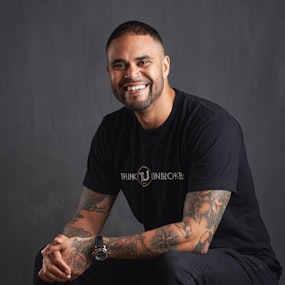
Michael Unbroken
Coach
Michael is an entrepreneur, best-selling author, speaker, coach, and advocate for adult survivors of childhood trauma.
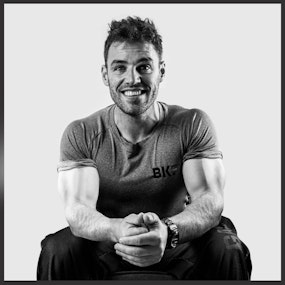
Brian Keane
Author, Online Personal Trainer, Business Coach
Brian Keane, known as Brian Keane Fitness online is a Reps qualified Level 3 Personal Trainer, certified Strength and Conditioning Coach and Sports Nutritionist.
Over the past seven years, he has gone from working full time as primary school teacher to one of Ireland’s leading thought leaders on all things health, fitness and nutrition.
He has had mainstream features everywhere from the UK and Irish Daily Mail, Star and Mirror to Men’s and Women’s Health Magazine.
On top of his ever growing social media platforms which have a combined total of well over a quarter of a million followers, he also hosts one of Ireland and the UK’s top health podcast which is regularly featured #1 on the iTunes Health Charts.
Brian’s online fitness programs have over a thousand graduates every single year. In his programs, he helps people reach their weight loss, fitness or body composition goal by giving them sustainable fitness programs alongside changing their entire mindset when it comes to food. Brian isn’t a calories in, calories out nutritional coach, nor is he a low carb, vegan or paleo advocate. His philosophy is all about finding a nutritional plan that works for you as an individual and showing that your mindset around nutrition is more important than the actual diet plan you are on.
In the summer of 2017, Brian published his first book The Fitness Mindset which spent 16 weeks on the Amazon best seller list. In December 2019, he published his second best selling book Rewire Your Mindset
Over the past seven years, Brian has become on… Read More
Welcome to The Think Unbroken Podcast!
Here are some of my favorite recent guests!



























